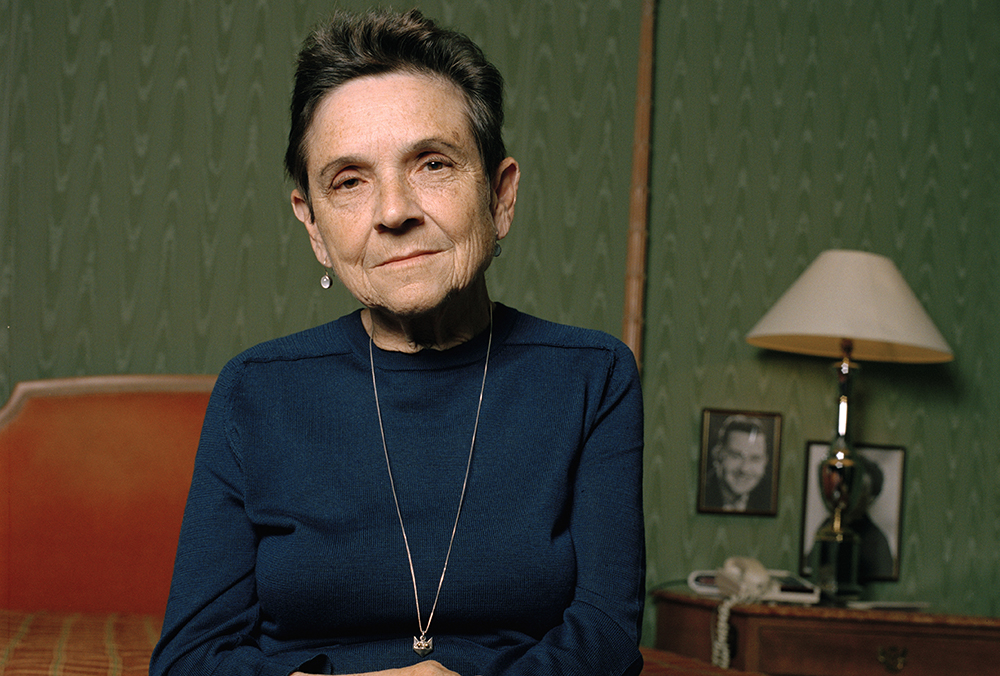PennSound Daily (original) (raw)
Today we're remembering legendary poet and theorist Adrienne Rich, who passed away on this day in 2012.
It would be difficult to list all of the accolades that Rich accumulated in the more than sixty years since her debut collection, A Change of World, was chosen by W.H. Auden for the Yale Younger Poets Award in 1950, but they include a Guggenheim Fellowship (1952), the National Institute of Arts and Letters Award (1960), the Poetry Society of America's Shelley Memorial Award (1970), the National Book Award (for Diving into the Wreck, 1974), the Poetry Foundation's Ruth Lilly Poetry Prize (1986), admission to the American Academy of Arts and Sciences (1991), the Lenore Marshall Poetry Prize (1992), the Frost Medal (1992), an Academy of American Poets Fellowship (1992), a MacArthur Fellowship (colloquially known as the "genius grant," 1994), the Wallace Stevens Award (1996), the National Medal of Arts (1997), and the Griffin Poetry Prize Lifetime Recognition Award (2010). Among these, it is perhaps the penultimate honor that is the most important, as Rich refused it, citing the government's hostile policies towards culture. "I could not accept such an award from President Clinton or this White House," she stated, "because the very meaning of art, as I understand it, is incompatible with the cynical politics of this administration . . . The radical disparities of wealth and power in America are widening at a devastating rate. A president cannot meaningfully honor certain token artists while the people at large are so dishonored"
This impassioned gesture serves as one very public and high-profile culmination of the process of radicalization that began in the early 1960s, as Rich, along with the nation at large, underwent tremendous cultural, political and social transformation. These preoccupations — the rights of women, the civil rights movement, stopping the war in Vietnam (and others since), ending poverty, and championing queer identity — were freely espoused in a number of celebrated volumes, including Leaflets, The Will to Change, Diving into the Wreck, A Wild Patience Has Taken Me This Far, and An Atlas of the Difficult World, and also in a prodigious body of non-fiction writing, where Rich found a second life as a groundbreaking feminist theorist. These deeply-held beliefs only grew stronger in the new millennium, where Rich faced troubling political times with a strong faith in poetry's remediative powers. Writing in The Guardian in 2006, she evoked Shelley's oft-quoted appraisal of poets as "the unacknowledged legislators of the world," observing "I'm both a poet and one of the 'everybodies' of my country. I live with manipulated fear, ignorance, cultural confusion and social antagonism huddling together on the faultline of an empire." These sentiments were explored masterfully in later volumes such as Fox, The School Among the Ruins, Telephone Ringing in the Labyrinth, and her latest collection, Tonight No Poetry Will Serve, and while Rich is often hailed as an exemplary feminist poet, or queer poet, or political poet, above all, she was an extraordinary (but otherwise adjective-less) poet.
You can listen to a variety of recordings spanning four decades on PennSound's Adrienne Rich author page, which is home to recording spanning from a 1951 set at Harvard's Woodberry Poetry Room all the way up to a 2006 reading at The Poetry Center at San Francisco State University. In them, and the twenty or so readings that come in-between, you'll find a thoroughgoing survey of almost her entire poetic career — from iconic poems to deep cuts — as well some representative prose. Of course, one of our favorite recordings is from Rich's 2005 visit to UPenn as a Kelly Writers House Fellow. Click here to start exploring.

